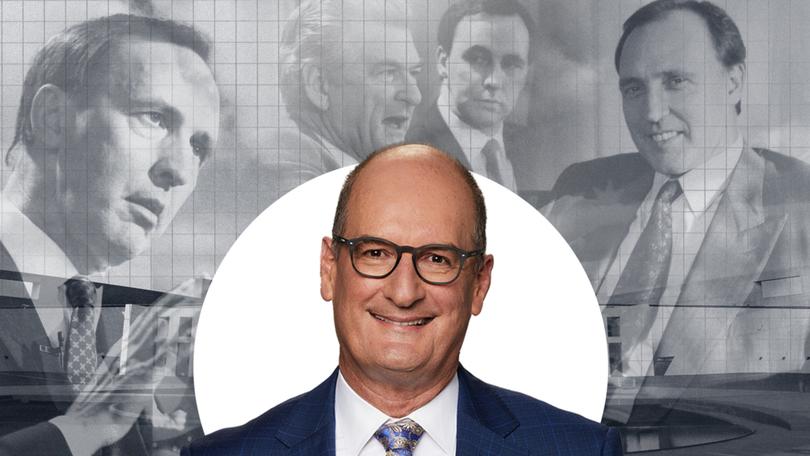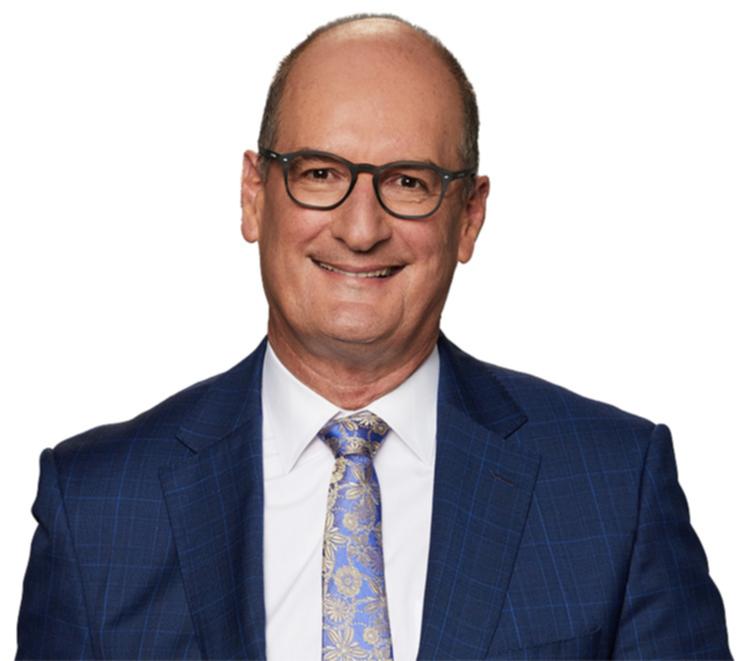DAVID KOCH: My challenge to Treasurer Jim Chalmers and hopes for a Paul Keating 2.0

Federal Treasurer Jim Chalmers is a self-confessed disciple of Paul Keating. My challenge to Chalmers is to step up from being a disciple of arguably Australia’s greatest ever treasurer to being this generation’s economic reform messiah.
In the 1990s Keating (with the support of PM Bob Hawke) reformed the Australian economy and 30 years later we are still benefitting from that vision.
He floated the Australian dollar, abolished import quotas, slashed tariffs, deregulated the financial sector, privatised state-owned enterprises, overhauled the tax system, introduced compulsory superannuation and replaced wage-accords with enterprise bargaining.
Sign up to The Nightly's newsletters.
Get the first look at the digital newspaper, curated daily stories and breaking headlines delivered to your inbox.
By continuing you agree to our Terms and Privacy Policy.It was an extraordinary agenda and, like Jim Chalmers, I’m a disciple of Keating as well.
He wasn’t perfect but he had the intellect and political cunning to reform a “banana republic” into a globally competitive economy and to shift our trade focus away from Europe and the US to Asia.
We need another Keating right now to set the economy up for the next 30 years. Yep, I’m looking at you Jim… and Albo to support you.
Whenever I challenged Chalmers when co-hosting Sunrise, my 89-year-old mother would complain I was too tough because “he seems such a nice man”.
And that’s the root of the problem. The Treasurer wants to be everyone’s friend. But an economic reformer has to be able to make tough, unpopular decisions in the interests of the future of the economy.
New RBA governor Michele Bullock has recently almost apologised for having to raise interest rates to fight inflation, acknowledging interest rates are a blunt economic instrument that have a massive impact on average Australian families.
But it is the only instrument available for the RBA to use. Monetary policy is using interest rates to adjust the speed of an economy.

The governor is right. Interest rates are an economic sledgehammer but there are myriad other inflation-fighting instruments in the hands of the Federal Treasurer to help.
It’s called fiscal policy and it’s where the Government uses budget measures to impact the economy — cutting Government spending to slow the economy or increasing Government spending to speed it up. Or it can increase taxes to slow an economy or cut taxes to stimulate economic growth.
Treasurer, instead of being the “good guy” and promising everyone a pay rise (which adds to inflation which then forces the RBA to lift interest rates), use your fiscal policy financial muscle to help the RBA fight inflation without raising interest rates or, at the current stage of the cycle, having to keep them higher for longer.
The Federal Government has plenty of financial firepower to introduce much-needed economic reform.
Last week’s national accounts showed the Treasury is taking in record amounts of tax revenue and the Government is spending at record levels as quickly as the cash comes in.
Despite all the political mumbo jumbo, the Federal Budget is in great shape, thanks to all of us.
And that’s the problem. Personal income tax is at record levels because of an archaic tax system where bracket creep slugs us out of a huge chunk of any pay rise or extra income.
It’s because the Government has so few sources of income. It’s so heavily reliant on personal income tax, company tax and payroll tax.
That’s where economic reform must start — the tax system.
As one of our great former Treasury secretaries, Ken Henry, said recently; “So, less reliance on taxes on labour income and part of capital income.”
“For the rest of capital income — which is interest, rent, and capital gains — we’ve got to do a much better job of getting similar tax treatment across those various forms of capital income.
“Consumption tax, we need to fix up the mess. We thought we fixed it in 2000 but we didn’t get as far as we wanted to get. In particular, we’ve got to get rid of all of those bloody transaction taxes, like stamp duties on insurance.
“And we’ve got to abolish fuel excise. . . and figure out a comprehensive road-user charging scheme.”
The stage three tax cuts coming on July 1 were meant to be a big step forward for tax reform with the abolition of the 37 per cent tax bracket so that middle-income earners would stay at 30 per cent on income earned between $45,000 and $200,000 a year.
But, as usual the Government backed down at the last minute and that middle tax bracket remains.
I agreed that the upcoming tax cuts should have been skewed more to middle and low-income earners but surely it could have been done without sacrificing tax reform.
If the Government backed away from such a simple reform that had been agreed by all parties years ago, what hope is there of any future reform happening?
There is no chance of a discussion about raising the GST to replace stamp duties and excises. Or reform to personal tax rates and thresholds. Or to have a uniform investment tax rate across capital gain and income returns.
It’s a testament to Paul Keating he could achieve so much reform.
But he needs be an inspiration for his current disciples to do the same.
